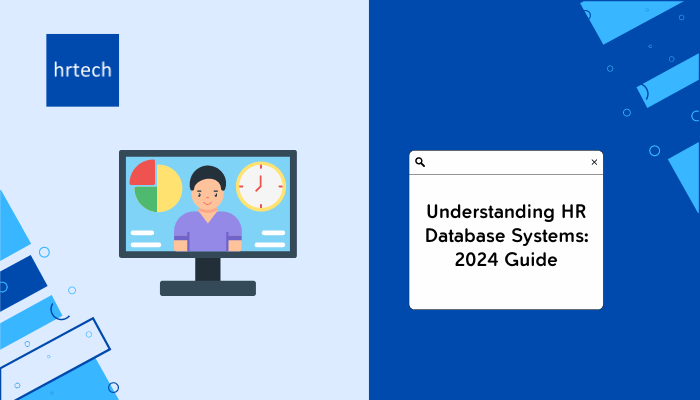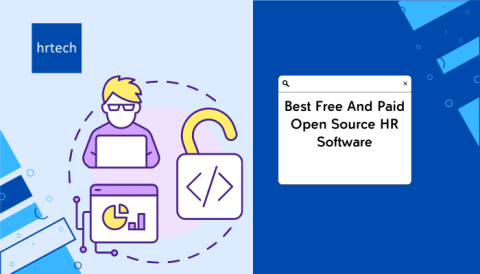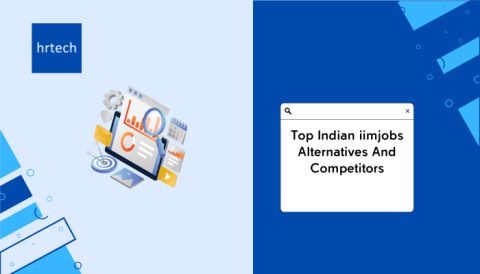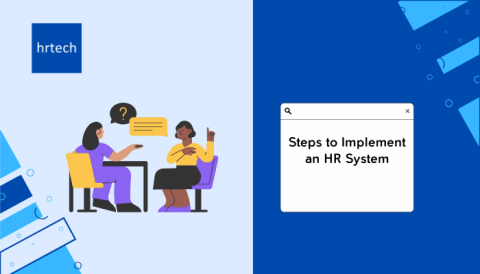HR database systems are becoming essential tools for businesses today, helping them manage employee information more easily and efficiently. These systems make HR tasks simpler, allowing companies to keep track of important data and make better decisions.
As workplaces change, having effective HR database systems is more important than ever. These systems help organize employee data, track performance, manage talent, and assure compliance with laws. This guide will give you a clear understanding of HR database systems, their key features, benefits, and the latest trends in HR technology for 2025.
What are the HR database systems?
HR database systems are centralized HR software platforms designed to store, manage, and organize employee-related data in a secure and efficient manner. These systems serve as the backbone for Human Resources departments, allowing them to handle vast amounts of data related to an organization’s workforce.
A recent Gartener survey found that 79% of HR professionals think using technology is crucial for their success. Additionally, the global market for HR software is expected to grow to $30 billion by 2025, with an annual growth rate of 10%.
By consolidating information into a single system, HR database systems enable easy access to employee records, which helps in streamlining various HR processes like recruitment, onboarding, payroll, and performance evaluations. These systems also help assure compliance with labor laws and regulations by keeping accurate records and automating many manual HR tasks.

What are the core components of HR database systems?
HR database systems consist of several key components that help manage and organize employee data. These components typically include:
1. Personal and Professional Information
This includes employee data such as name, contact details, date of birth, educational qualifications, work experience, and more. This section serves as a repository for all basic employee information, which is critical for a variety of HR processes.
2. Job Titles and Reporting Structures:
HR database systems track an employee’s job title, department, and reporting structure within the organization. This helps HR professionals and managers understand where an employee fits within the organization and who they report to, making it easier to manage workforce hierarchies and communication chains.
3.Employment History:
This component stores detailed records of each employee’s history within the organization, including job positions held, promotions, transfers, salary adjustments, and key performance indicators. It provides a comprehensive view of an employee’s career progression within the company, aiding in performance reviews, talent management, and succession planning.
4.Compensation and Benefits Management:
HR database systems also manage payroll and benefits, tracking employee salaries, bonuses, deductions, and benefits packages. By integrating this information with attendance and performance data, these systems automate payroll processes and assure accurate, timely compensation for employees.
By organizing and centralizing this data, HR database systems make it easier for HR professionals to manage employee records, assure compliance, and generate reports that support strategic decision-making.
What Are the Key Functions of HR Database Systems?
HR database systems play a vital role in streamlining HR processes and enhancing decision-making capabilities within organizations. These systems manage essential HR functions such as payroll management, talent management, and training management. By automating payroll processes, HR database systems assure accurate salary calculations, deductions, and tax compliance.
| Key Function | Description |
| Payroll Management | Automates salary processing, tax deductions, and compliance with labor laws. |
| Talent Management | Supports recruitment, onboarding, and workforce planning processes. |
| Training Management | Tracks employee training programs and certification completions. |
| Tracking HR Metrics | Monitors key metrics like employee turnover and absenteeism for better decisions.| |
What Are the Benefits of Using HR Database Systems?
HR database systems offer significant advantages that improve the overall efficiency and effectiveness of Human Resources management. One of the primary benefits is the streamlining of HR processes through automation. By automating tasks like payroll processing, employee record-keeping, and attendance tracking, these systems reduce the manual workload on HR professionals and minimize paperwork. This not only saves time but also reduces the likelihood of human error.
- Automation: Reduces manual tasks and paperwork, freeing up HR staff to focus on more strategic activities.
- Real-time Data Access: Centralized system provides access to up-to-date employee information, enhancing responsiveness and accuracy.
- Improved Decision-Making: Data-driven insights enable better workforce planning, employee engagement, and resource allocation.
- Enhanced Reporting: HR professionals can generate comprehensive reports quickly, facilitating performance tracking and compliance reporting.
What Is the Importance of Data and Analytics in HR Database Systems?
The integration of data and analytics in HR database systems is crucial for modern HR management. These systems leverage big data to provide deeper insights into employee performance, allowing organizations to assess individual and team productivity, skill gaps, and development needs.
| Aspect | Details |
| Big Data Utilization | HR database systems collect and analyze large volumes of employee data, including performance metrics, attendance, and engagement levels. |
| Employee Performance Assessment | These systems allow HR professionals to track individual and team performance, identifying high performers and those needing development. |
| Skill Gap Analysis | Analytics tools highlight skill gaps, guiding HR in designing targeted training and development programs for employees. |
| Data-Driven Strategic Management | HR databases provide insights for long-term workforce planning, helping organizations align talent strategies with business goals. |
| Process Improvement | By analyzing operational data, HR can identify inefficiencies in current processes, streamlining workflows and enhancing overall organizational productivity. |
What Are the Privacy and Security Concerns in HR Database Systems?
The privacy and security in HR database systems is critical, as these systems store sensitive employee information such as personal details, payroll records, and performance data. One major concern is the risk of data breaches, which can lead to unauthorized access, data theft, or misuse of confidential employee information.
To mitigate these risks, it is essential to implement strict access controls, ensuring that only authorized personnel can view or modify sensitive data. In addition to access control, HR databases should incorporate data encryption to protect information both in storage and during transmission.

Customization and Integration in HR Database Systems
HR database systems offer significant customization capabilities to meet the unique needs of different businesses. Organizations can customized these systems to fit specific workflows, user roles, and reporting requirements, ensuring the technology aligns with operational demands.
Moreover, the ability to integrate with other platforms, such as payroll systems, accounting software, and customer relationship management (CRM) tools, enhances data consistency and accuracy across departments. This seamless integration eliminates data silos, allowing for a more unified and efficient data flow throughout the organization, thus improving overall HR operations.
- Customizable workflows and HR database features
- Seamless integration with payroll, accounting, and CRM systems
- Assure data consistency and accuracy across platforms
How Do HR Databases Support Reporting and Decision-Making?
HR database systems play a crucial role in ensuring accessible and clear data reporting, which is vital for effective decision-making across the organization. The integration of HR dashboards within these systems provides concise and real-time insights, allowing HR professionals and executives to track key performance metrics and make data-driven decisions. By offering a centralized view of HR data, these systems improve transparency and support compliance with reporting standards.
- Clear and accessible data reporting for better decision-making
- HR dashboards provide real-time, concise views of key metrics
- Improves transparency in HR operations and employee performance
- Assures compliance with labor regulations and reporting standards
- Empowers data-driven HR decision-making
| Feature | Description |
| Accessible Data Reporting | Provides clear, real-time access to essential HR metrics for decision-making. |
| HR Dashboards | Visualizes important HR data, enabling quick analysis of performance and trends. |
| Effective Decision-Making | Helps HR leaders make informed decisions based on accurate, up-to-date data. |
| Transparency | Increases visibility into employee performance and HR processes. |
| Compliance Support | Assure adherence to reporting and regulatory standards. |
Conclusion
HR database systems are very important for modern HR management because they help make HR tasks easier, more organized, and more efficient. They allow companies to manage employee data, make better decisions, and improve overall HR operations. Additionally, advancements in HR tech are transforming how HR departments operate, making processes more streamlined and data-driven.
It’s also important to keep learning about new technologies and updates in HR database systems so organizations can continue improving how they handle HR processes and stay up to date with the latest advancements.
If you’re interested in optimizing your HR functions, consider exploring the latest HR tech solutions that can enhance your database systems and overall management practices.
If you’re interested in optimizing your HR functions, consider exploring the latest hrtech solutions that can enhance your database systems and overall management practices. For more information or to discuss how we can help you implement these solutions, contact us today!





